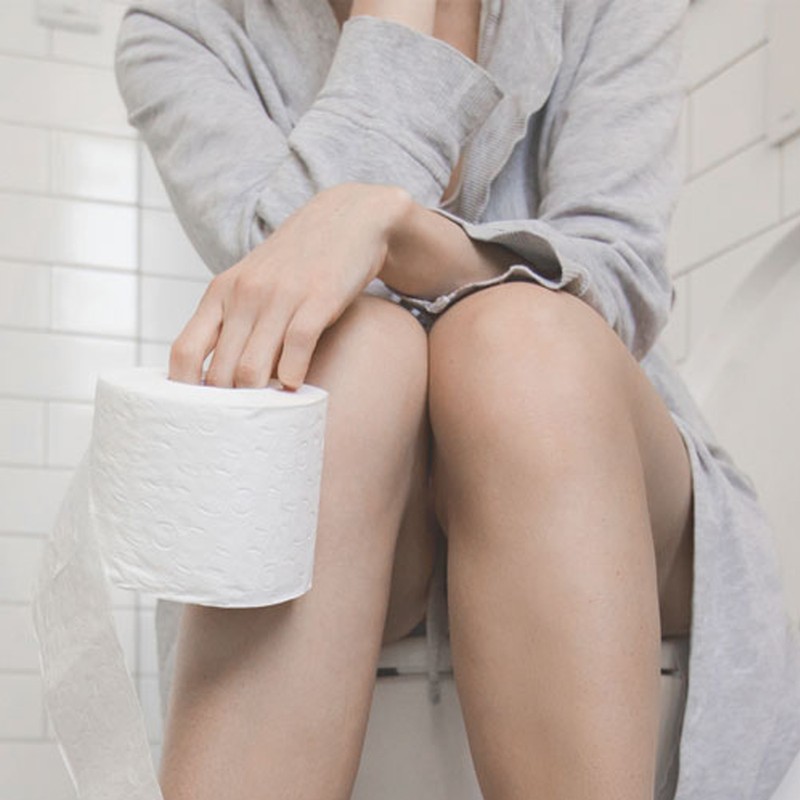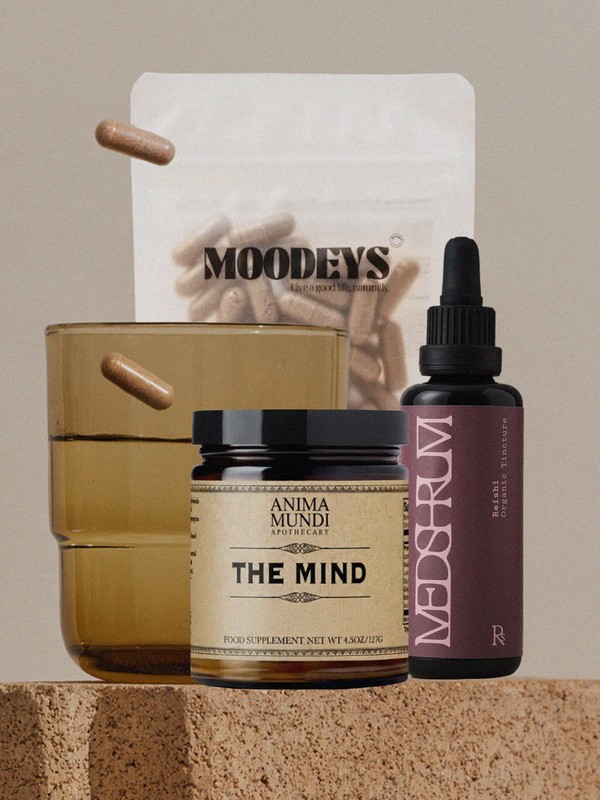Why You Shouldn't Feel Embarrassed To Talk About Constipation
Often we may think we’re constipated, but what really defines constipation according to medical terms is having infrequent bowel movements (less than three per week) and discomfort while passing stools. Most people experience occasional bowel problems, but approximately 14% of adults suffer from chronic constipation. Many turn to laxative medications, but these can lead to dependence and troubling side effects. Unfortunately, unlike other body organ concerns, constipation is seen as a private matter and discussing one’s poo is simply gross, unladylike and quite frankly, not necessary. This is where people go wrong: if you suffer from constipation and leave it untreated, it can cause chronic pain and further problems to your digestive tract. Severe chronic constipation can lead to problematic complications like faecal impaction and fissures, so it’s time to get over your embarrassment and speak up. You may think you’re the only one suffering, but you’re not.
It’s not surprising, in a world full of readily available food that’s high in sugar and fat, that constipation is on the rise. Diet is the most common cause for constipation, and ones that rely on processed food and simple carbohydrates are invariably linked to poor bowel movement. Fibre, particularly, is required to absorb water so that faecal matter does not solidify. Ensuring that the body is not dehydrated is essential. Nutritionist and Naturopath Rosemary Ferguson suggests upping your fibre intake with a powder supplement sprinkled daily over food – this is an easy way to ensure you’re getting ample fibre in your diet. Renew Life FibreSmart is Ferguson’s go-to choice.
According to Gabriela Peacock, nutritionist and founder of GP Nutrition (gpnutrition.com), constipation can be caused by many different factors. Most common factors are a lack of fibre in the diet, inadequate hydration, imbalanced flora in the gut, or food sensitivities. Peacock suggests “upping your water intake and increasing the fibre in your diet, by eating more wholegrain, nuts and seeds, melon and potatoes (with the skin on).” If you still see no change in your bowel movements, Peacock advises consulting your GP, as your constipation may be a sign of a food allergy.
Another main cause of constipation is hypothyroidism. This refers to the thyroid gland, which fuels every single cell within the body, including the cells that line the gut and the muscles surrounding the intestines to ensure healthy mobility.
As ever, age also plays a significant role. The lack of digestive enzymes is significantly lower as we age and roughly only half are still present at the age of 40 from when we were in our 20s. These are the enzymes that break down all food groups efficiently in order to extract nutrients. A lack of these enzymes leads to slower breakdown of food and possible stagnation within the gut.
Unfortunately, women will suffer two to three times more than men. The main reason for this may be linked to hormones (isn’t everything?!). During menstruation, the intricate balance between the female sex hormones is disturbed, which may relax the muscle of the intestines leading to slower movement of food within the intestines and leaving you feeling constipated. Pregnancy can also cause constipation. Almost four out of 10 pregnant women will suffer from constipation during their pregnancy – the most common culprit for this is the iron supplements all pregnant women are advised to take from as early as your first trimester.
So what can we do to reduce constipation? Supplements can play a huge role in stimulating bowel movements naturally. Magnesium and vitamin C have both been shown to promote bowel evacuation – take them simultaneously to get the full effect. Similarly, Probiotics are a great cure, only recently getting the attention they deserve both in diet, skin and overall gut health. Margo Marrone, pharmacist, homeopath and founder of The Organic Pharmacy is a big advocate of the wonders of probiotics: “I have seen many cases of genetic constipation cured by homeopathy. Stools are a key factor in homeopathy and during a consultation it’s an important part of a person’s psyche.” Marrone suggests a daily dose of probiotics that contain Bifidobacterium Lactis (B. lactis) that shorten intestinal transit time and B. Lactis and Lactobacillus Casei to help ease discomfort in chronic cases.
Massages and non-invasive colonics will also ease sluggish guts and get things moving quicker. The latest technique that celebrities are raving about is tummy tapping. This is the modern-day answer to colonic irrigation but with added benefits. Former Black Belt Judo champion and masseuse Tetyana Prodbyy-Holova, who counts Kylie Minogue as a client, takes a very holistic approach to constipation. Prodbyy-Holova pioneered the new body treatment with Organ Stimulation, a unique tapping technique used to gently activate the function of the liver, the gallbladder and the pancreas. With these vital organs kickstarted into action, she then moves on to a deep but gentle abdominal massage to target any tensions and blockages, resulting in improved blood flow and the easier passage of food, fluids and gas through the digestive system. The results are both immediate and lasting, with clients reporting inches lost from their waistlines (added bonus!) as metabolic waste, gas and toxins are drained, without any discomfort and embarrassment of baring all.
All of these small changes will make a significant difference to your bowel movements. It’s time to stop shying away from the subject and – quite literally – get a move on!
DISCLAIMER: We endeavour to always credit the correct original source of every image we use. If you think a credit may be incorrect, please contact us at info@sheerluxe.com.






